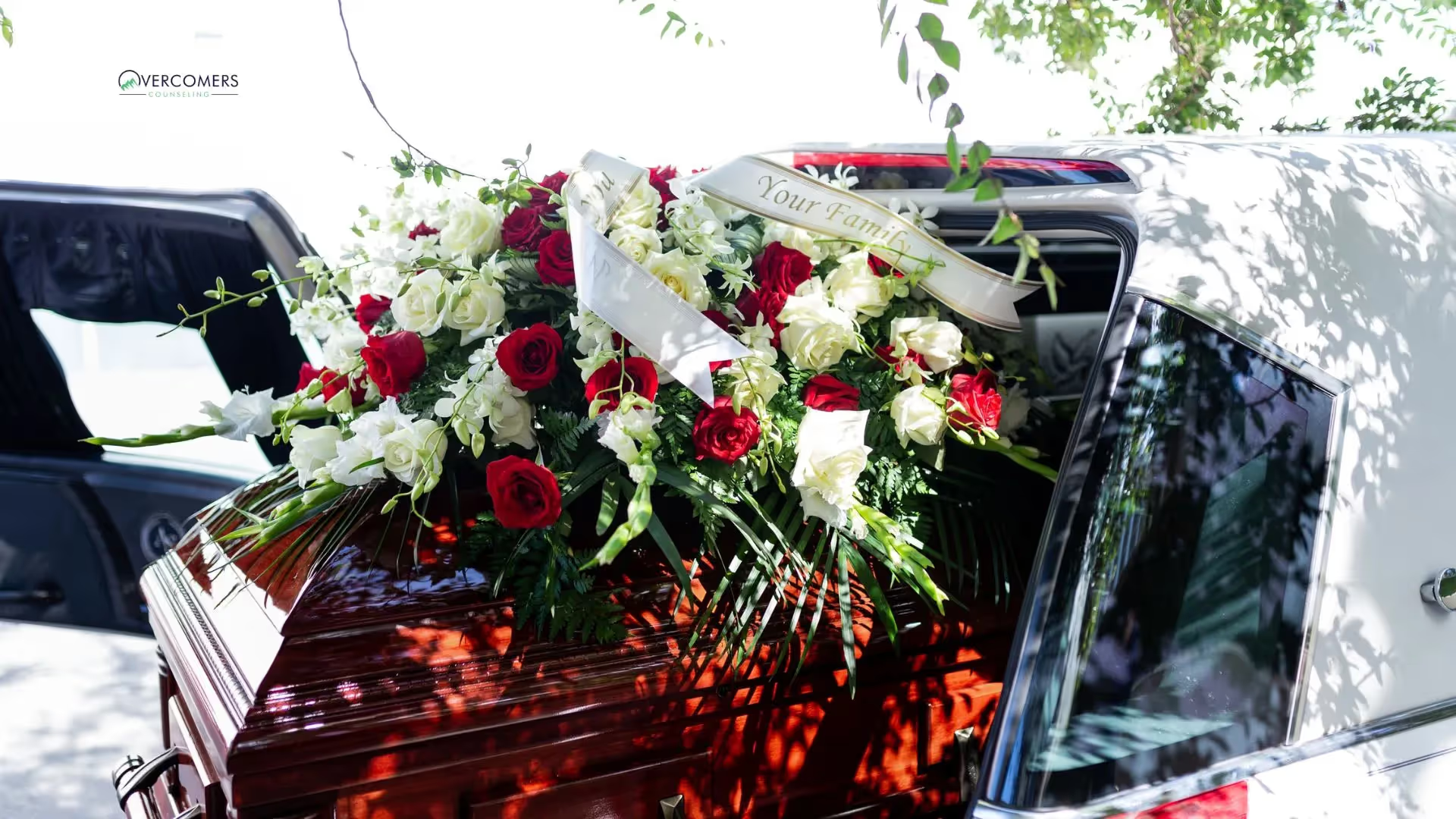Intense feelings and a lack of direction can make funeral preparations a challenge.While processing profound loss, you must attend to a myriad of funeral...

Intense feelings and a lack of direction can make funeral preparations a challenge.
While processing profound loss, you must attend to a myriad of funeral details, which can make it harder.
However, planning a heartfelt memorial service is one way to commemorate their life and help one move on.
A funeral service will allow you to say your final goodbyes and pay your respects to a person who played an important role in your life.
Though it may be hard to think about funeral arrangements when you're just beginning to process your grief, having grief support and assistance will help.
The first thing you ought to do when you are planning a funeral is to start as early as possible.
A funeral service is not something that can be rushed, especially when you want to give the deceased a befitting burial.
Another very important part of funeral planning is calculating and planning your budget for the funeral and who will pay for it.
When emotions are running high after a loss, it is easy to be carried away and end up overspending, which is why it is important to know your budget.
There are several different types of funeral services to choose from.
Figure out what type the deceased would have requested for or loved, and go with that
Below you'll find advice on planning a funeral.
Planning one's funeral early can be beneficial to both the deceased and their family.
On the one hand, some people make an effort to plan the funeral a while before they even die.
On the other hand, there are circumstances where the family is left to make all the decisions for the deceased.
In an instance of the latter, it is important to start early because planning a funeral requires many steps that have to be sorted out before the day.
Getting started early will give you room to prepare for any possible problems or delays that may arise during the planning of a funeral.
In the event that your loved one made any pre-arrangements, it is important that you locate the information and use it as a guide for the planning.
Some people pre-plan funerals by paying for funeral plots, setting money aside to cover the costs, or simply writing down their wishes for memorial services.
Contact the funeral home that handled your loved one's pre-paid or pre-arranged funeral arrangements.
As strange as this may sound, the truth is that it spares the family the anxiety of not knowing how their loved one who has passed away would want to be buried.

In the wake of a death, it's not uncommon for loved ones to spend more than they should.
It is essential, however, to consider the family's financial situation, the wishes of the deceased, and the cultural and religious norms of the community.
Your family will be in good shape if your deceased loved one has already planned and paid for a funeral.
However, a few things, like flowers, hall, catering, a reception, etc., may end up costing more than originally anticipated.
Nonetheless, funeral costs won't be as high for your family as they are for many others.
Unless your loved one has made other arrangements, funeral costs may be covered by life insurance or a final expense plan.
Please consult a funeral professional for advice on how to best apply such funds toward final arrangements.
An unexpected funeral can drain savings quickly, leaving no money to cover costs.
In such a case, you can have relatives chip in for the funeral in a variety of ways, including helping to pay for some of the costs.

When planning a funeral, even if you are an only child, don't think you need to do it all by yourself.
Although there are people who would like to handle all the aspects themselves, it is a good idea to allow others around you to help with the planning.
Family and friends are there for a reason; use them.
Something you can do to make the process easy is to make a list of all the aspects that need to be completed and then delegate them.
When you have delegated each task, what you can do next is to ensure there's always a follow-up.
This way, you can track the progress of every task and see to any issues as quickly as possible.
Think about the type of funeral ceremony you want and how your loved one would like to be remembered.
A traditional funeral may include both a viewing and a ceremony at the cemetery of choice.
Additionally, there are cremation services, graveside ceremonies, and numerous religious services and accompaniments.
Also, if a location has not been predetermined, one must be chosen.
Who will lead the memorial service once it begins?
You need to choose the right officiant.
It is important to remember to select a coffin/casket and transportation.
Pre-arranged funeral plans can alleviate a great deal of stress during this trying time, so keep an eye out for any additional information included in the Will.
If there are no funeral arrangements specified, you will need to make appropriate arrangements with the rest of the family.
You might want to arrange for a memorial service in addition to the burial or cremation.
Those who wish to say their final goodbyes to friends and family members of the extended family can do so at this gathering.
If you're stuck deciding what kind of memorial to hold, there are numerous resources and services online to help you decide.
It is also a good time to ask for help in organizing a memorial service or funeral.
Get the word out as soon as possible if you want a loved one to deliver the eulogy, say a few words, or even just greet family members.
The funeral planning process can be challenging and completely overwhelming for some families.
They don't know where to begin and get so overcome by grief that they drag their feet while making funeral plans.
If you feel it's all too much for you, get the grief support you need and consider hiring a service that can help you with funeral preparations.
Tips for planning a funeral include: starting as early as possible, understanding your budget,
delegating, deciding on the type of funeral service, and determining any additional memorial service particulars.
https://www.funeralbasics.org/5-basic-steps-funeral-planning/
https://lavistamemorialpark.com/saying-your-final-goodbyes-the-top-funeral-planning-tips/
https://smct.org.au/plan/10-steps-to-planning-a-funeral
https://trustandwill.com/learn/how-to-plan-a-funeral
https://stjohnsdixie.com/cemetery/5-tips-to-help-you-plan-a-sudden-funeral-for-an-unexpected-death/
There is no set timeline for overcoming a breakup. Everyone deals with grief in their own way and on their own time. While some may be able to move forward quickly, others may take longer. Remember that it's normal to experience a range of emotions as you heal and don't rush the process.
The stages of grief, according to the Kübler-Ross model, include denial, anger, bargaining, depression, and acceptance. However, it's important to note that not everyone will experience all these stages, or in this order. Grief is a highly individual process.
Grief can be particularly intense in the early days following a loss. However, it's not uncommon for grief to become more pronounced at certain times, like at night or in the morning. This can be due to the mind being busy processing the events that happened.
It is not mandatory that all conversations revolve around the issue causing your grief but our therapists will provide guidance on how best to process the situation. You are in control of how much or little you want to share in a session, but it is important to stay open and honest with your therapist for optimal results.
It's important to remember that you are allowed to grieve however you need to, and that doesn't mean you have to ruin the holidays for everyone else. If you need to take a break from holiday festivities, do so. Go for a walk, take a nap, watch a movie—whatever you need to do to take care of yourself. You can also try talking to your family about your grief ahead of time and asking for their understanding and support.
Ignoring grief can exacerbate symptoms and make it more challenging to manage over time. This can result in a negative impact on your personal, professional, and social life, leading to feelings of isolation, chronic sadness, and even physical health complications.